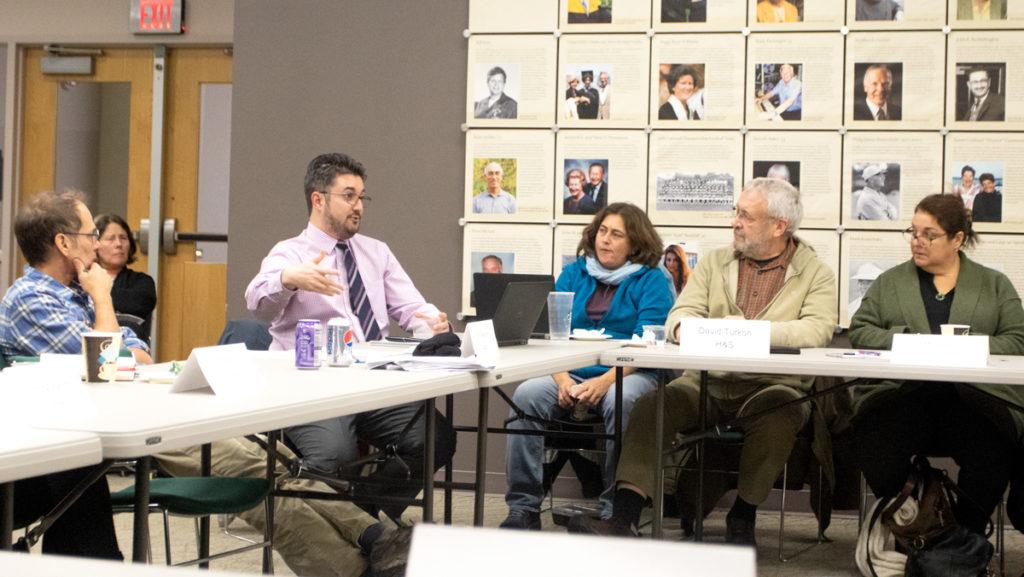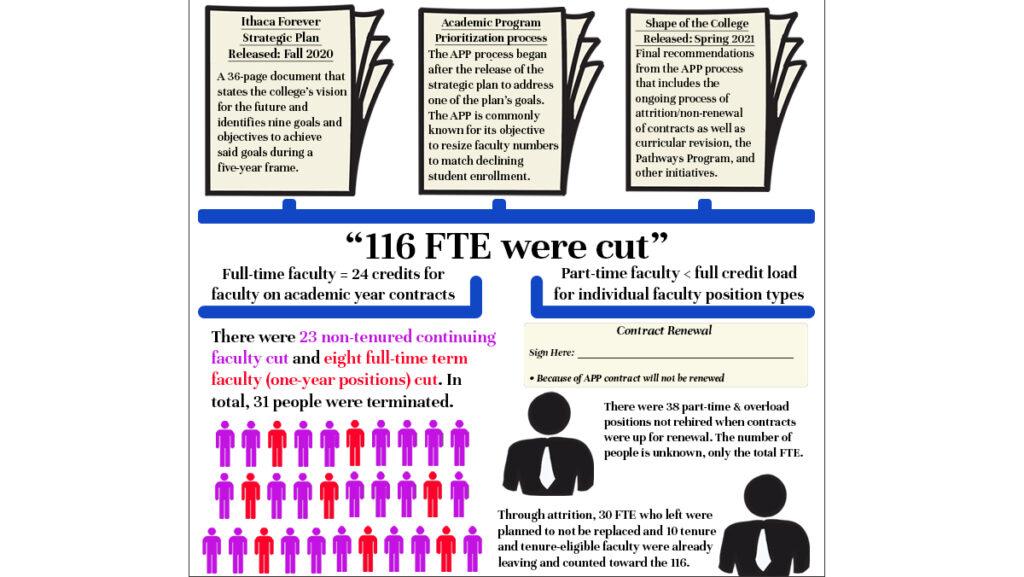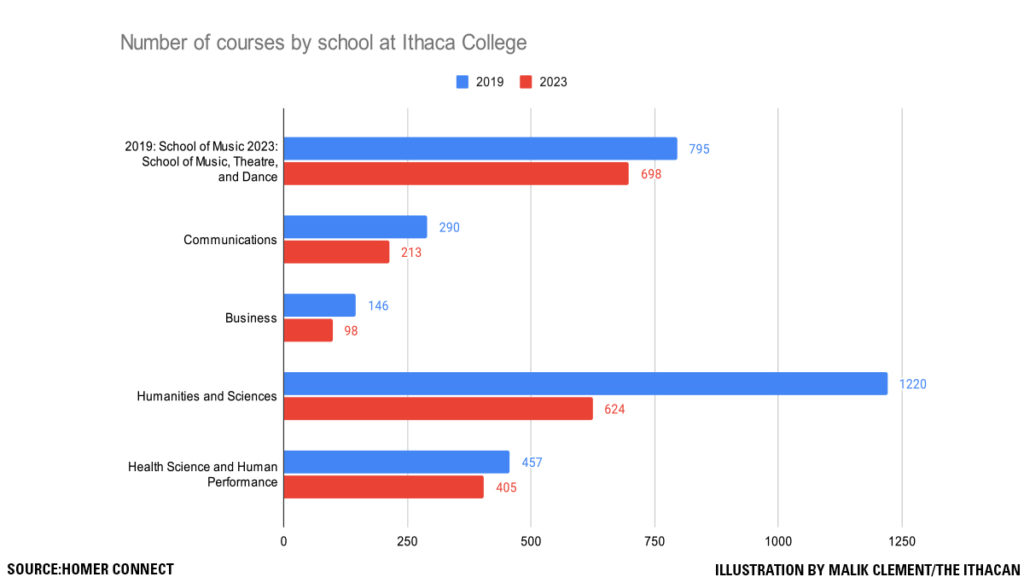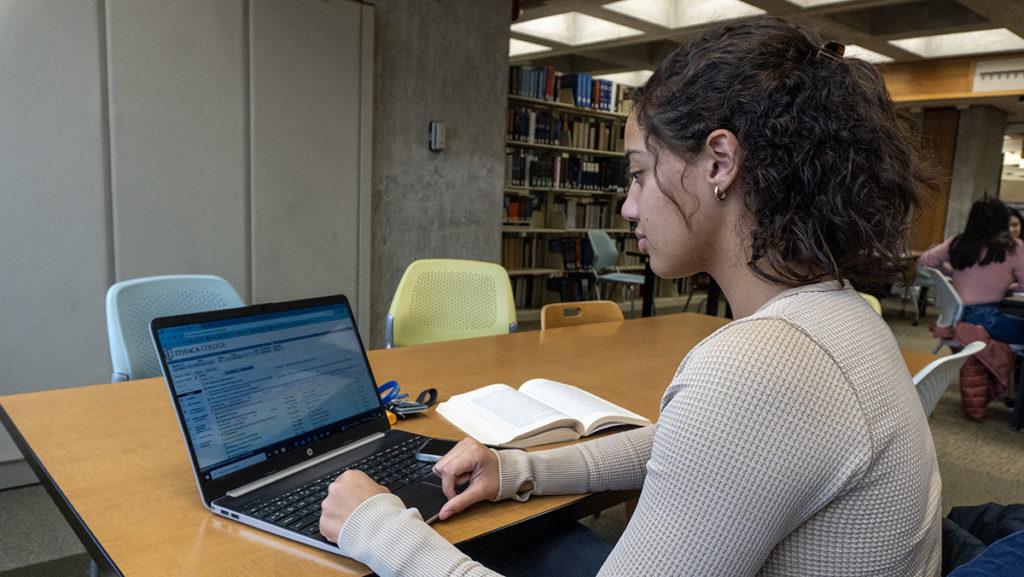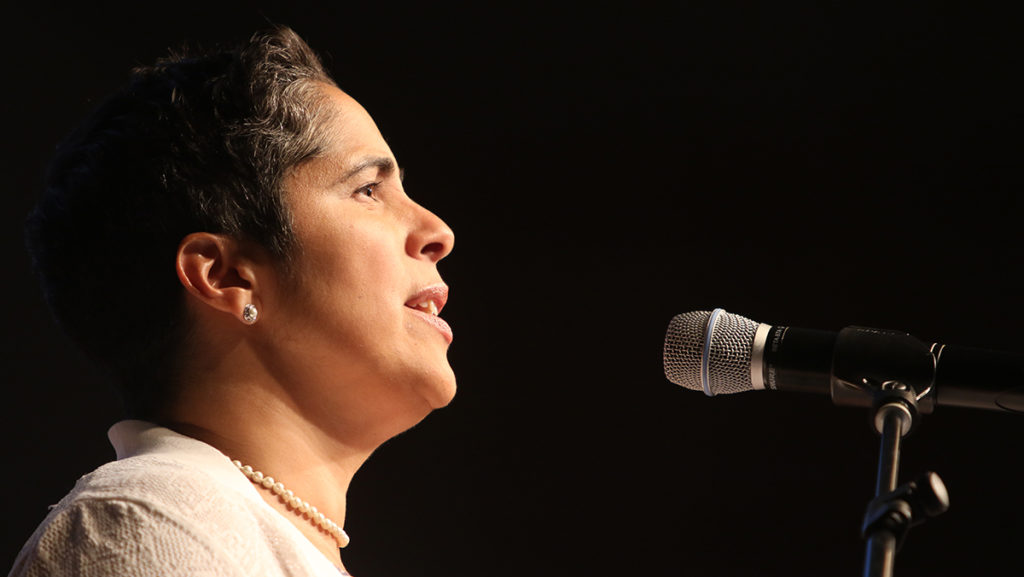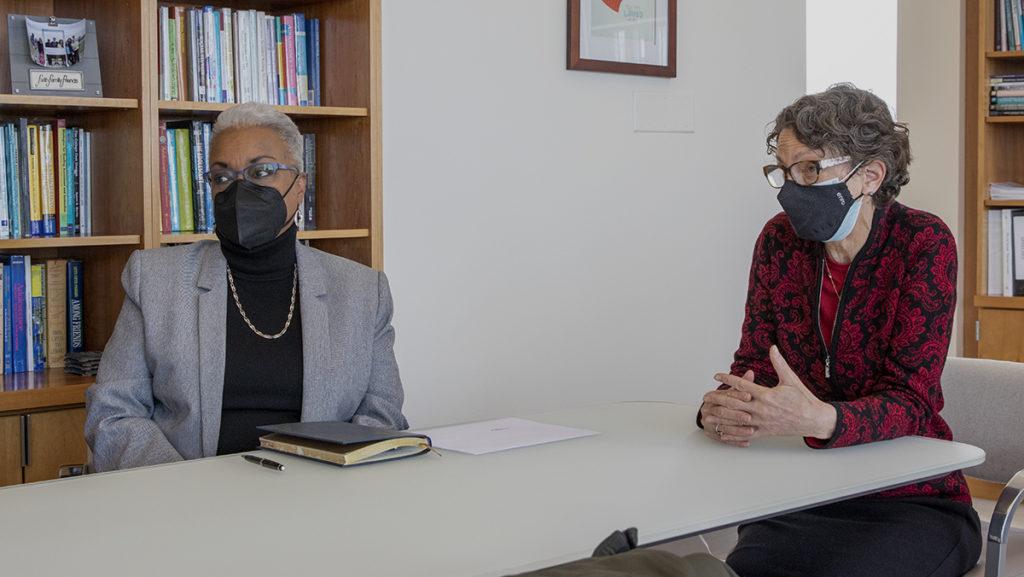The Ithaca College Faculty Council discussed the second phase of the Academic Program Prioritization (APP) process and COVID-19 guidelines for Fall 2021 during the May 4 Faculty Council meeting.
The second phase aims to restructure and reorganize the academic programs, La Jerne Cornish, provost and senior vice president for academic affairs, said. The first phase began in Fall 2020 and involved cutting 116 full-time equivalent (FTE) faculty positions and discontinuing over 20 departments and programs.
During the meeting, Cornish spoke about centralizing the management of graduate programs. She said the college used to have centralized graduate program management, and returning to this style would help ensure the financial stability of graduate programs. Graduate programs at the college were managed under the Division of Graduate and Professional Studies until 2010 when they were decentralized.
Cornish said she met with the Graduate Council to discuss potential challenges and opportunities that a centralized management style would bring. The Graduate Council is a group that includes the deans of each school and the program chair or director of each graduate program. It also includes a representative from the Office of the Provost, the Office of Admission and the Office of the Registrar as non-voting members of the council. There are currently 17 master’s and doctoral degree programs at the college, but five of these programs will be eliminated as part of the APP.
Cornish said the Graduate Council discussed having market analyses for programs, increasing student engagement and creating a space on campus designated for graduate students. She said she hopes to create a position for an associate provost of graduate and professional studies, and in approximately four years she hopes to have a division of graduate and professional education at the college.
“In looking through the archives in my office, I came across white papers about graduate education at the college from 2002, 2007, 2011 and 2015,” Cornish said. “Those white papers were filled with wonderful ideas that I hope that we can act on and implement.”
Cornish briefly discussed changing the dean structure but said details on this restructuring will not be released until the May 25 faculty meeting. She did say the Roy H. Park School of Communications, the School of Music and the School of Business will continue to have interim deans for the 2021–22 academic year.
Chris McNamara, clinical associate professor and clinic director in the Department of Physical Therapy and chair of the Faculty Council, then asked faculty at the meeting to share what their respective schools and departments have been discussing in terms of curricular revision. Multiple faculty members brought up the recommended change from three-credit courses to four-credit courses that is described in the “Shape of the College” document.
Claire Gleitman, professor in the Department of English, said she is worried that many students would not enroll in four-credit courses.
“If all our courses go to four credits and that works for us as an individual department, will our enrollment in ICC courses plummet because the professional school students can’t handle the additional credit?” Gleitman asked.
James Mick, associate professor in the Department of Music Education, said students majoring in music education may not have room in their schedules for any additional credits. The Bachelor of Music in Music Education degree requires 123.5–126.5 credits depending on the concentration. Mick said music education students often have to take zero-credit classes to avoid exceeding the 18 credit limit each semester.
“Any credit load added outside of our program would be extremely difficult, particularly since we’re also trying to bring our credits down,” Mick said.
Other faculty members, like Lisa Farman, associate professor in the Department of Strategic Communication, said they do not feel that their department or school would be greatly affected by a change in credits. Farman said some departments in Park already use four-credit classes, while others use three-credit classes.
“The way we’ve been handling this uncertainty about what other people are doing is we’ve made kind of two different plans: One for if everyone’s actually going to go to four credits, and then making an alternative plan for what we do with our curriculum if some schools or some programs don’t go to four credits, and they have three–credit classes,” Farman said.
Christina Moylan, director of public health emergency preparedness, also spoke at the meeting to discuss COVID-19 vaccination requirements and guidelines for Fall 2021. Moylan said that as of May 4, approximately 1,200 students and 600 employees have submitted their vaccination cards to the college. The college is requiring all students to be vaccinated before returning to campus in Fall 2021 unless they have a religious or medical exemption.
Several faculty members at the meeting asked why employees are not required to be vaccinated to return to campus. Moylan said there is still discussion on mandating vaccination for employees, but it is more complicated than mandating vaccinations for students.
Moylan said the college plans to eliminate online and hybrid instruction for Fall 2021 with the exceptions of courses that were conducted in this style prior to the COVID-19 pandemic. All other courses will be taught fully in person. She said it is likely that masks will still be required indoors, but social distancing guidelines may be lessened. Cornell University announced May 3 that students who are fully vaccinated no longer need to wear masks at outdoor gatherings of fewer than 10 people.
“There’s some shifting sands here, and the rules kind of keep changing,” Moylan said. “It’s making it a little bit challenging for us. We’re trying to do the best that we can.”


